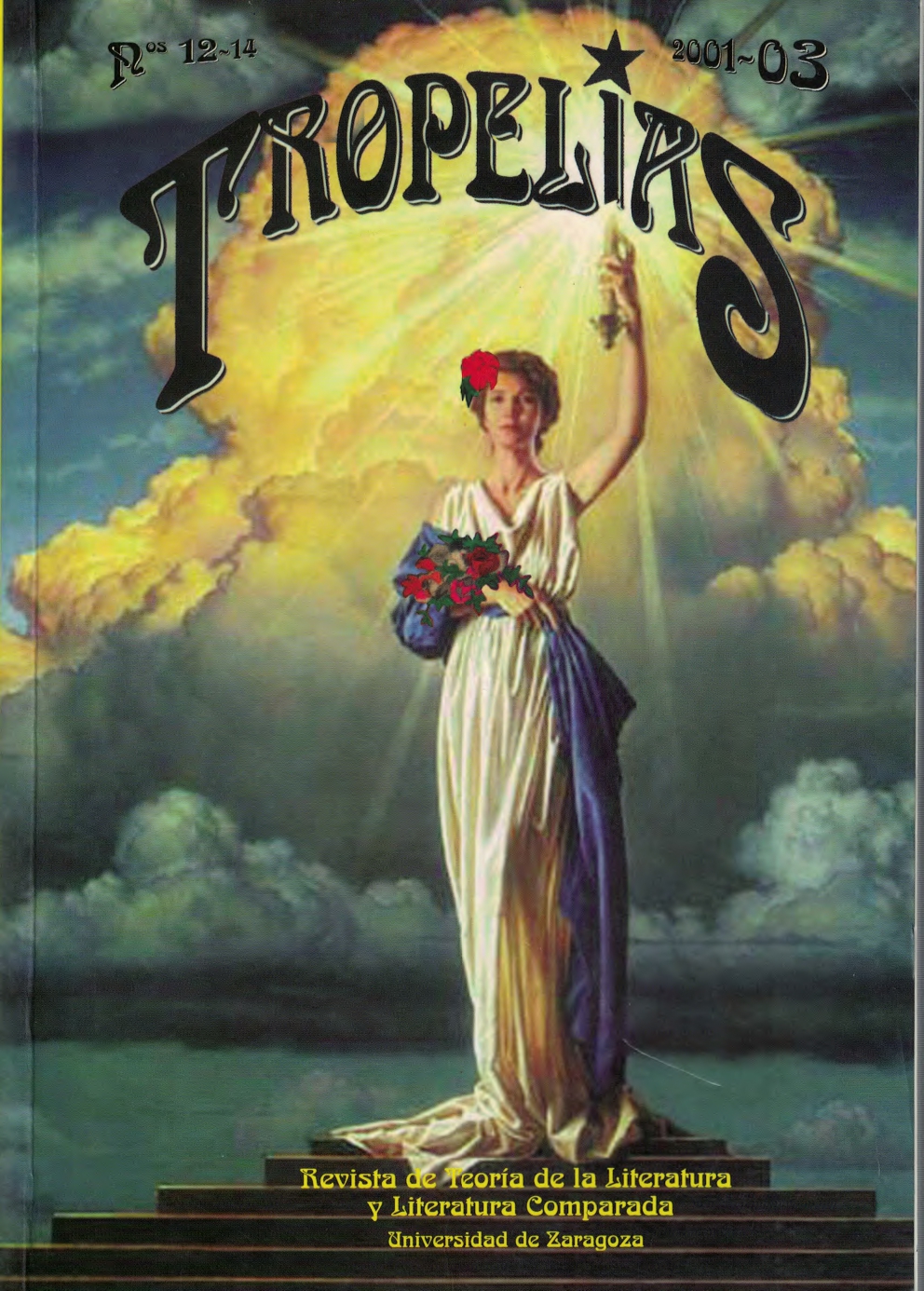Kierkegaard y la liberación irónica en “Endgame”
DOI:
https://doi.org/10.26754/ojs_tropelias/tropelias.200312-145814Palabras clave:
Soren Kierkegaard, Samuel BeckettResumen
El intento de evasión de Clove en Endgame de Samuel Beckett se manifiesta en forma de una serie de estrategias que reflejan la estructura de “liberación irónica” que Kierkegaard expone en The concept of irony, with constant reference to Socrates. Una variedad de objetos y estrategias guían los esfuerzos de Clove y los dividen en dos etapas: la cancelación de la realidad escénico-dramática y la entrada en un estado eufórico. Ambas etapas están marcadas con distintos comportamientos del protagonista y elementos escénicos, éstos proveen la ruptura y el enlace entre los componentes concretos y abstractos de la representación dramática de Endgame.
Descargas
Descargas
Publicado
Cómo citar
Número
Sección
Licencia
Derechos de autor 2021 Paul Popovic

Esta obra está bajo una licencia internacional Creative Commons Atribución 4.0.
Los artículos enviados a la revista Tropelías deben ser originales e inéditos, no publicados previamente en cualquier soporte. Únicamente se aceptará material publicado total o parcialmente con anterioridad, o que esté en proceso de evaluación en otra revista, si se hace constar la causa de tal duplicación y se facilita la fuente donde ha aparecido dicho artículo.
Las imágenes que se incluyan en los artículos estarán libres de derechos de reproducción y, en caso contrario, los autores deberán presentar los permisos para su publicación y asumir los pagos derivados de ello.
Los artículos y reseñas publicados en la revista Tropelías pueden ser incluidos en repositorios temáticos o institucionales desde el momento de su publicación, sin modificación alguna e indicando claramente su procedencia.


